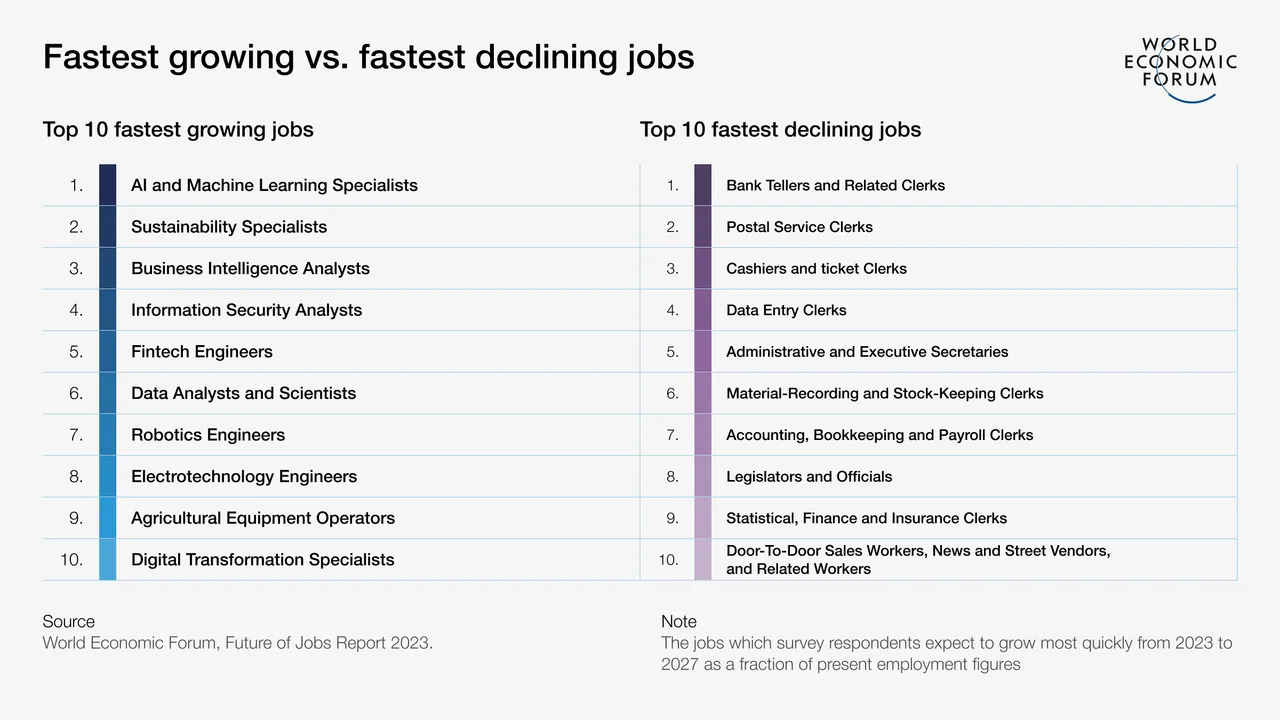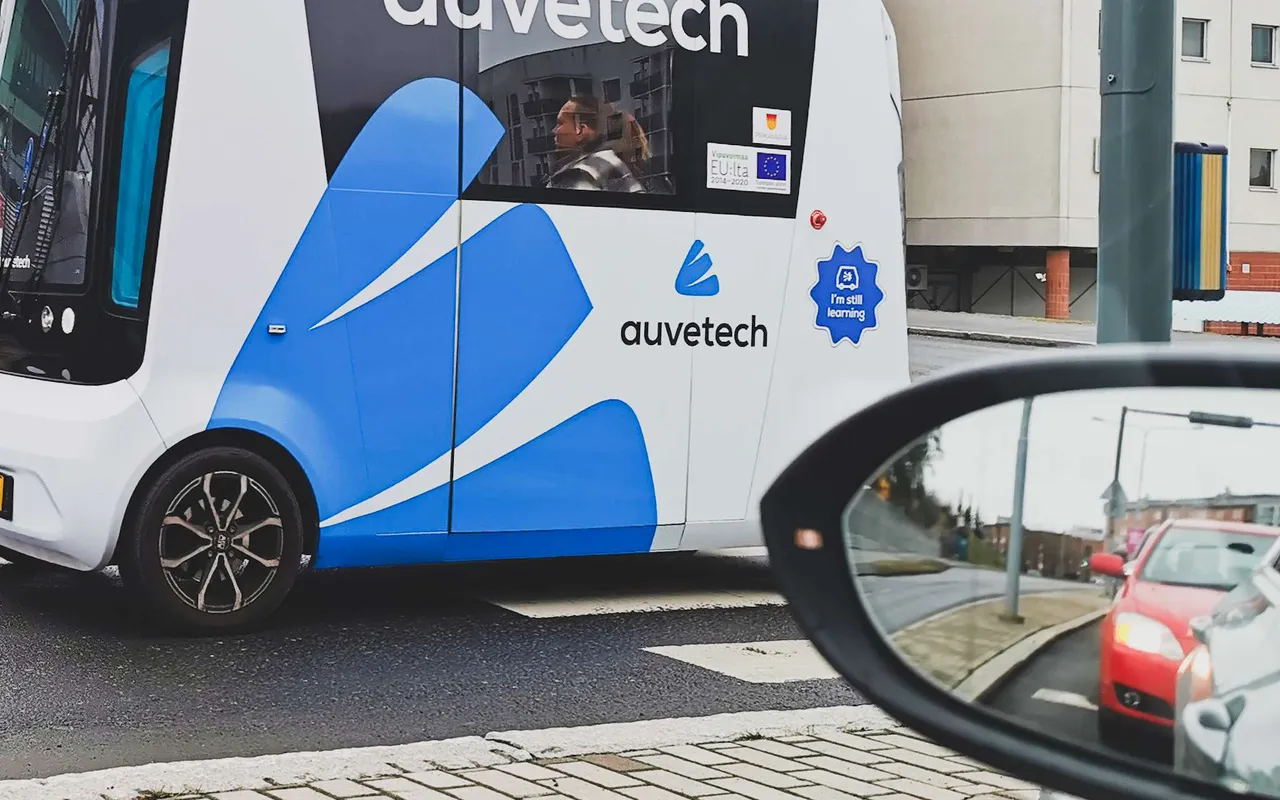I don't put a lot of stock in what the World Economic Forum has to say on pretty much anything, but I came across an article that stated that while 69 million new jobs would be created in the next five years, 83 million jobs would disappear, setting up a 14-million job negative. Most of these will be lost to the increase in automation and technology, but I think that their estimations are low-ball, and more will be lost.

However, one of the things that people keep saying is that even though technology like AI will destroy jobs, it will also create jobs. This is true, however what they never seem to acknowledge is whether they themselves have the ability to do the jobs that are getting created. This came up in a comment the other day where someone said that AI will mean there will be more jobs for coding AI, which is great, but when asked, they don't have the skills to do it themselves and actually cited using AI to code AI - which still doesn't give them a job.
The WEF (who are often wrong about many things) put out this list of the expected fastest growing and declining jobs:

If we look at it from a potential pool of workforce perspective, how many people are suitably equipped to do the jobs on the left in comparison to the jobs on the right? Sure, some people can be retrained, but very few people who are Bank Tellers and Related Clerks, are going to be able to make the shift over to AI and Machine Learning Specialists. I work in IT now and I know there is no hope for me to do that, because I am just not smart enough, or at least, smart enough in the areas I would need to be smart in to be able to add value enough that someone would pay me to do the work, over someone who is smart enough in the right areas.
A lot of people also cite the conditions of technological change in the past where work changed needs changed and ew pivoted, But again, they fail to recognize that the world in which we live is fundamentally different to when we went from farming into an industrialized world, or from manual industry into production lines.
The difference is speed.
You know there are still companies around the world who use paper for their office documentation and contracts? This is 2023. Times move fast, but not everywhere. However, they moved mush slower in the past and the industrialization of industry and even the automation of processes took a long time to spread. But, the spread is getting ever faster, facilitated by global communications, globalized conglomerate industries, and globalized investment and banking - as well as governments that tend to "follow suit" on may topics of industry.

That is a driverless buss cruising around last week, near where I work. There isn't even a person sitting in there, because in Finland, there was nothing put into the law that there "has to be a driver" in a vehicle. One of the few countries in the world where they can test completely driverless on normal roads. It is designed to do the "first and last mile", essentially shuttling people to transport hubs like tramways and as far as I have heard, it seems to be working okay.
That is tens of millions of jobs potentially gone from around the globe once ubiquitous, but the kinds of people who were doing these jobs earlier, aren't likely going to hit the books and become Fintech Engineers.
The problem is that most likely, the new jobs that are created are going to be in industries and fields that aren't able to be done by the people who lost their jobs. And, even the ones that are able to be done by them, there will be very high competition so they will be able to pick and choose who they put in the positions, and it will again unlikely be the bottom 40% of the workforce.
This means that through technological advancement, we are setting ourselves up for an even more quickly increasing wealth gap, and there will be little incentive for the top end, to do much of anything for the bottom, because they can't add value. Even as consumers, at some point, they aren't earning enough to make their attention valuable enough to attract, making them "just an expense" on the system.
If consumers have no money to spend, they can't consume by spending, only through handouts. Which is why people have been talking about some kind of universal basic income system, which means that people will be able to keep consuming, indebted to others. It becomes a form of slavery and who knows what hoops will need to be jumped through in order to get access.
The future is exciting, because we don't really know what advances are going to be made and what is actually going to happen, but I am skeptical that it is going to be good for the majority at this point, because thousands of years of history have taught us, it rarely is. The thing that has protected most of us is our ability to add some value into the system, making us needed, but once our tasks are automated, why keep us around?
Then there are the people who believe they are going to become creators on web 3.0 platforms, yet they again don't seem to acknowledge that the thing that makes a creator worthy, is their experience and personal voice - not their ability to use AI. And then, in a world where there are many people competing for attention, how are the majority of people going to stand out?
The last couple days, these things have been weighing on my thoughts a little, as I realize that I am not suited for an automated world. For me to compete in the workplace, whether as an employee or business owner, I have to be able to bring value at the personal level and with each layoff, the competition is increasing. But if I can't compete, I am not sure what I will do.
Do you know?
I have twenty plus years left until retirement, but I don't think my skill depth is going to last that long in the changing society, so I will have to find other ways to make it through. I am not the only one in this position however, the majority of us are and unless already close to retirement, I think that we will all be professionally affected. Some will get more opportunity opened up to them, the majority will be shut out. Yet after half a life of learning, no one wants to believe that much what they have learned, will soon be irrelevant - because no one is needed to do it at all.
Taraz
[ Gen1: Hive ]
